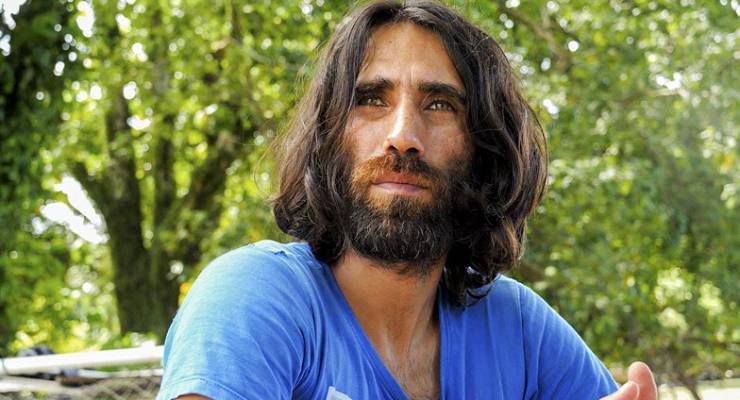
Journalist and Kurdish-Iranian refugee Behrouz Boochani landed in New Zealand last night and has said this morning that he will not seek asylum there for now but will look at it as a possibility “later”. Last night, the news emerged that Boochani had safely left Papua New Guinea for NZ after being forcibly held for over six years by Australia’s offshore processing regime.
Many people assumed Boochani had been granted asylum or residency by New Zealand. Boochani is, in fact, in New Zealand on a visitor’s visa after he was invited by organisers of a literary festival in Christchurch. And it was jarring to hear this morning that, on his first day as a free man, he still has to continue to do the work of educating both well-wishers and journalists on the complex and fraught details of how difficult it is to escape Australia.
While Boochani weighs his options from New Zealand, his presence there escalates trans-Tasman relations beyond corrosive. New Zealand has been offering to take refugees from Manus for years, but the Australian government has declined, saying that the free travel arrangements between the two countries mean those from Manus could travel to Australia from New Zealand. But as many of those men have pointed out, they would not want to step foot in the country that has treated them this way.
New Zealand Deputy PM Winston Peters has previously said NZ would not consider banning refugees his country accepts from entering Australia, as this would create a kind of second class of citizenship that was fundamentally unacceptable.
Boochani’s escape from PNG, coupled with the recent human rights award given to Abdul Aziz Muhamat that allowed him to seek asylum in Switzerland, makes it apparent that other, saner countries are now running a kind of Schindler’s List to save the men on Manus. This includes Canadians collaborating to sponsor an increasing number refugees who have not won awards and, thus, do not have an escape route.
Boochani’s reprieve in New Zealand is politically freighted, as Australian lawyer and migration agent Alison Battisson points out:
“The arrival of Boochani in New Zealand and his comments regarding his refugee status determination process and detention illustrate just how political the process of seeking asylum is. Not just for him but for the men still on Manus and those transferred to Australia, many of whom remain detained.
“Seeking asylum is a fundamental human right. The process was politicised post-World War II when the nations of the world came together and agreed to protect some of the most vulnerable people. Somehow, in the intervening years, politics has turned against this initial wave of political will.
“The reasons for this and whether this is serving the best interests of individual states must be examined. New Zealand’s issuance of a visa to Behrouz should serve to ignite further discussion.”
While Australia continues to detain and deport more New Zealanders than any other nationality, Boochani’s presence as free man just across the Tasman ends a biblically awful week for Scott Morrison’s credibility but a far worse one for his country.
The PM who said he would “burn for the Australian people every single day” has yet to comment on the freedom of Boochani, who this morning said that he was was pleased to be in “Christchurch … an important and symbolic place that had educated people around the world with kindness”.
What does this mean for Australia’s relationship with New Zealand? Send your thoughts to boss@crikey.com.au. Please include your full name for publication.








Crikey is committed to hosting lively discussions. Help us keep the conversation useful, interesting and welcoming. We aim to publish comments quickly in the interest of promoting robust conversation, but we’re a small team and we deploy filters to protect against legal risk. Occasionally your comment may be held up while we review, but we’re working as fast as we can to keep the conversation rolling.
The Crikey comment section is members-only content. Please subscribe to leave a comment.
The Crikey comment section is members-only content. Please login to leave a comment.